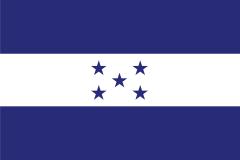
Relentless Killings in Bajo Aguan, Honduras, Related to African Palm Production and Global Food Supply Chains - Hipólito Rivas & 15-year old son murdered
published Feb. 14, by Rights Action
Dinant Corporation – controlled by the Facusse family, Honduras’ most powerful land barons – is the leading consumer goods business specializing in the for-export production of African palm oil. (https://www.dinant.com/)
Members of the Facusse family are directly implicated as ‘intellectual authors’ and financiers of the assassination of land and Indigenous rights defender Berta Caceres in 2016. For years, the World Bank was a major investor, profiteer of Dinant’s violent operations.
February 12 – Hipolito Rivas and son are killed
Karen Spring of Honduras Now reported on February 12 on her @HondurasNow twitter feed:
“Another campesino leader and his son have been killed in the Aguan Valley. According to Diario Colón, Hipólito Rivas & his 15-year old son were murdered in the community of Ilanga. Rivas was part of the Gregorio Chavez campesino cooperative from the La Panama. #Honduras.”
On his twitter feed (@jolson321), journalist Jaren Olson wrote:
“They are the 7th social movement members assassinated in the Aguán these past 2 months. His friend Juan Manuel Moncada was assassinated in 2021. Hipolito's cooperative, Gregorio Chavez, was contesting land with Dinant Corporation (which denies links to recent violence) for years.”
“I'd known Hipolito since 2021. He was incredibly generous, let me stay in his home, and took such pride in seeking to create a self-sustaining community, despite threats from the paramilitaries that killed his friend Juan Moncada that year.”
In Honduras Land Battles, Paramilitaries Infiltrate Local Groups — Then Kill Their Leaders
Paramilitaries are targeting campesinos who are battling a corporate palm oil giant
By Jared Olson, theintercept.com, November 6, 2021,
https://theintercept.com/2021/11/06/honduras-paramilitaries-land-rights/
Amongst other issues addressed in Jared’s The Intercept report is the role of the U.S. government and military training Honduran “special forces” in the region; and links between these “special forces” and paramilitary groups and Dinant private security guards. The Intercept reports also on the central role of the World Bank as a major investor in and defender of its business partner, the Dinant Corporation.
Honduras: Blood and the Water
Assassinations of Berta Caceres and Gregorio Chavez
In September 2016, AlJazeera Faultlines reported on the assassination of Indigenous, anti-imperialist, feminist, environmental activist Berta Caceres, and the assassination of land defender Gregorio Chavez in the African palm producing region of the Bajo Aguan.
http://www.aljazeera.com/programmes/faultlines/2016/09/honduras-blood-water-160920064355648.html
Not a “Honduran” problem
The killings of Hipolito Rivas and his 15 year old son - and 100s more in the Bajo Aguan region – are NOT a “Honduran” problem. These violent crimes and land theft are committed on behalf of the global African palm industry and food producers who are business partners of violent land barons around the world, such as the Facusse family in Honduras.
Rights Action in the Aguan
From 2009-2014, Rights Action worked extensively in the Bajo Aguan valley of northern Honduras, documenting and denouncing the Afrian palm industry violence and repression; providing emergency funds to family members of the dead and repression victims.
After the 2009 U.S. and Canadian-backed military coup in Honduras, killings and repression spiked even higher in the region, as the World Bank and global food industry conglomerates increased investments and business relations with Honduras’ land-owning oligarchs and, principally, the Dinant Corporation.
This work was spearheaded by former Rights Action colleagues Annie Bird (annie@rightsandecology.org) and Karen Spring (spring.kj@gmail.com), who both continue with their involvement in the Aguan region.
